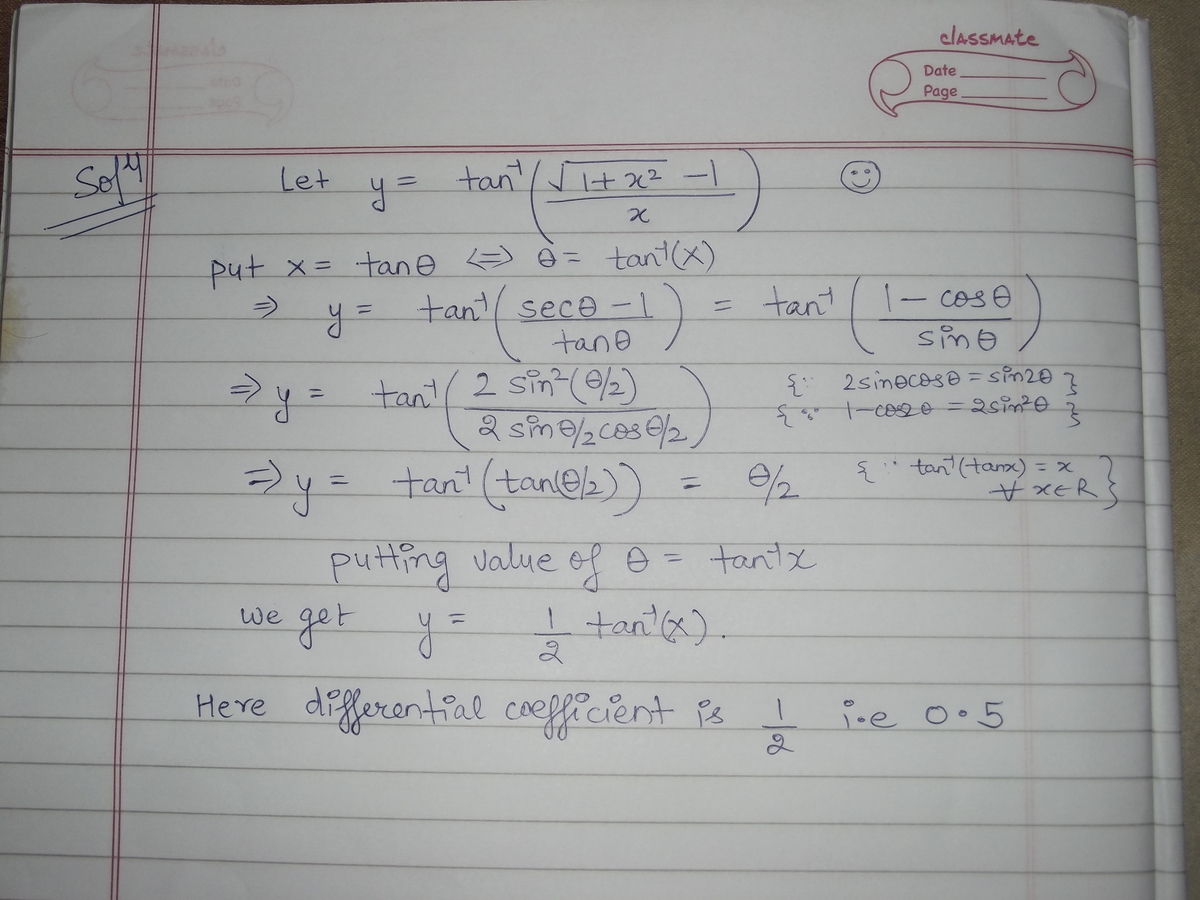With all due respect to tan's inverse
Find the derivative of tan − 1 ( x 1 + x 2 − 1 ) with respect to tan − 1 x , when x = 0 .
Notation: tan − 1 y = arctan y .
The answer is 0.5.
This section requires Javascript.
You are seeing this because something didn't load right. We suggest you, (a) try
refreshing the page, (b) enabling javascript if it is disabled on your browser and,
finally, (c)
loading the
non-javascript version of this page
. We're sorry about the hassle.
1 solution
so easy it was
Log in to reply
Log in to reply
thanks to you sir
Log in to reply
@Shashank Rustagi – Previously I just saw your transformation and commented.
But you haven't mentioned that you have differentiated w.r.t tan − 1 x . It may appear trivial to you. But you need to show that also
Anyone viewing this would think this is trolling :(
But it isn't.
Log in to reply
@Soumo Mukherjee – true , i have to do that
put x = tan(A) then evaluate and after solving you will get arctan((1-cos(A))/sin(A)) put 1- cosA = 2sin^2(A/2) and put sinA = 2sin(A/2)cos(A/2) then answer will become arctan(tan(A/2)) answer = A/2 putting A = arctan(x) we get the answer 0.5 arctanx here differencial coefficient is 0.5